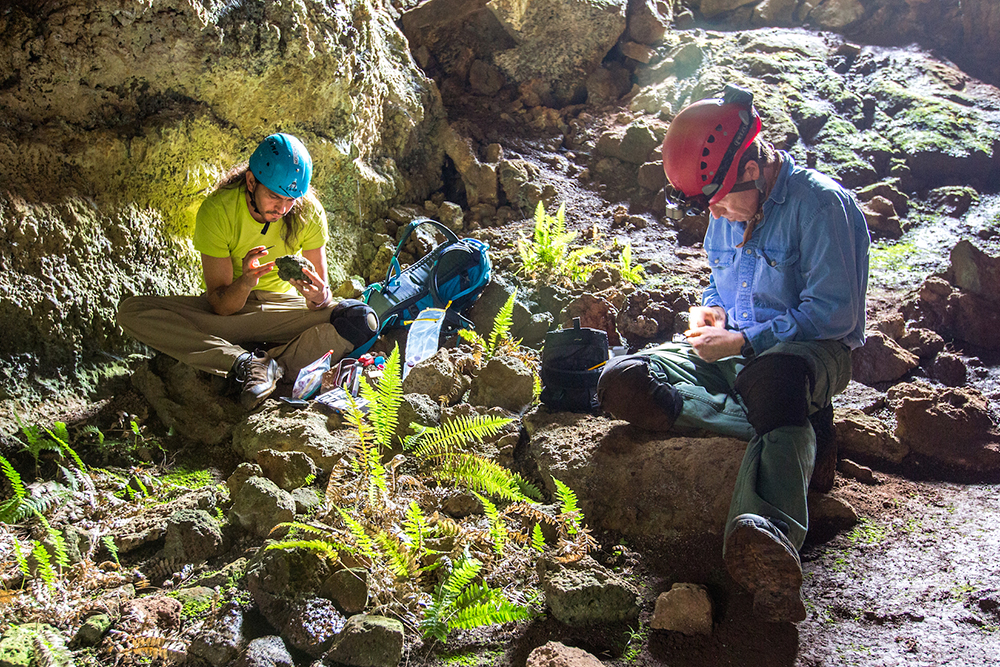Ecologist Jut Wynne, assistant research professor in Northern Arizona University’s Department of Biological Sciences and Merriam-Powell Center for Environmental Research, first studied cave insects on Rapa Nui (Easter Island), Chile, from 2008 through 2011. Along with fellow researchers, he identified eight species new to science and endemic—known to occur on Rapa Nui and nowhere else—to the southeastern Pacific island, as well as two species believed dispersed by the ancient Polynesians. This work prompted an island-wide search for endemic insects.
Wynne was recently awarded a prestigious Fulbright fellowship enabling him to continue his research—a video of the talk Wynne gave at the Fullbright Commission in Santigo, Chile can be viewed online. This summer, he conducted an island-wide expedition to search for endemic species in caves, cliffs, coasts and crater lakes. Through this work, he and colleagues collected insect specimens in areas believed to harbor endemic insects, and information on the habitats where specimens were collected.
According to Wynne, there has been a dramatic environmental shift on the island, which is now inhabited primarily by non-native invertebrate species that compete with native species for survival.
“Today,” explained Wynne, “Rapa Nui is quite different from what the first Polynesians observed. Even as the Rapa Nui society flourished and the island’s nearly 1,000 iconic moai statues were being carved and moved across the island, an island-wide extinction event was already under way. Due to a combination of factors—including extreme isolation restricting the ability for plants and animals to colonize the island; a fragile, fire-intolerant ecosystem; and an extended drought—a catastrophic ecological shift took place.”
Palm-dominated scrub forest changed to grassland. As a result, all native terrestrial vertebrates and most of the native plant species went extinct. Only 31 of the island’s documented 400 species of insects are considered endemic, and 21 of these species have not been seen since they were first discovered several decades ago. Due to substantial environmental change, and competition with and predation by nonnative invasive insects, Wynne believes these species may now be extinct.
While the results from the expedition are preliminary, Wynne and taxonomic specialists identified at least nine species that may be new to science. Once he and students have analyzed the estimated 20,000 specimens collected from the island and select specimens sent to taxonomic specialists, he believes this work will more than double the number of native insect species presently known to occur on the island.
Watch a Spanish-language video developed by the Rapa Nui National Park, National Forestry Corporation (CONAF) to see where Wynne’s research was conducted and learn more about the project.



